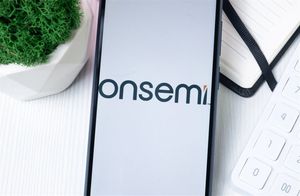-- JetBlue Launches New Partnership with World Energy and World Fuel Services to Fuel Flights from its Los Angeles Focus City with Sustainable Aviation Fuel --
JetBlue (Nasdaq: JBLU) has entered into a new relationship with World Energy and World Fuel Services for sustainable aviation fuel (SAF) at Los Angeles International Airport (LAX). JetBlue’s LAX flights using SAF started this month. This increase in the airline’s usage of SAF includes 1.5 million gallons of blended SAF a year for at least three years, accounting for approximately five percent of JetBlue’s LAX fuel.
Renewable fuel options will play a critical role in the aviation industry’s transition to lower-carbon operations. This is the latest step for JetBlue as the airline works to achieve its ambitious and comprehensive environmental social governance (ESG) targets, including a goal of net-zero carbon emissions by 2040. Last year, JetBlue became the first major U.S. airline to achieve carbon neutrality on all domestic flying, today primarily through carbon offsets while the SAF industry continues to grow, and lower-carbon technologies to reduce direct emissions.
“JetBlue is facing climate change head on and preparing our business for a new climate reality,” said Sara Bogdan, director of sustainability and environmental social governance. “Sustainable aviation fuel is one of the most promising ways to rapidly reduce air travel emissions and help our industry move toward our net-zero goals. We are focused on growing our use of sustainable aviation fuel to replace conventional fossil-based jet fuel in our focus cities as it becomes available. It has not historically had the same policy support as other low carbon fuels and comes at a premium today. We’re excited by the prospect of additional policy support to help grow and scale sustainable aviation fuel, helping to usher in a lower-carbon future for aviation.”
This follows JetBlue’s move to fuel flights from San Francisco International Airport (SFO) with SAF with another fuel provider. World Energy, a zero-now solutions provider for transport and the industry’s first commercial-scale producer of SAF, is supplying JetBlue fuel at LAX from its facility in Paramount, Calif. JetBlue is World Energy’s second U.S. commercial airline partner to incorporate SAF into its regular operations. Made from inedible agricultural waste, World Energy’s SAF is certified by the Roundtable on Sustainable Biomaterials to reduce emissions by up to 80 percent per gallon before being blended with petroleum jet fuel. Delivery of the fuel into LAX will be managed by World Fuel Services, JetBlue’s fuel management company.
“JetBlue is taking aggressive action utilizing tools available today to deliver on their net-zero carbon emissions goals,” said Bryan Sherbacow, chief commercial officer, World Energy. “Expanding commercial use of sustainable aviation fuel is critical in changing the industry’s carbon outcomes. World Energy is excited to partner with JetBlue in fueling their success in transitioning to a zero-carbon aviation industry.”
“We are honored to support JetBlue’s comprehensive sustainability strategy through our steady supply of sustainable aviation fuel,” said Brad Hurwitz, senior vice president – supply and trading, World Fuel Services. “Since 2014, World Fuel Services has delivered more than 22.1 million gallons of cleaner-burning, low-carbon sustainable aviation fuel. With World Energy, we continue to focus on increasing sustainable aviation fuel availability and supply chain efficiency for aviation.”
JetBlue views robust oversight of key ESG issues as good for business and for generating long-term value, and recognizes that customers expect clean, efficient, and affordable travel. That’s why JetBlue is helping lead the path in sustainable aviation.
LAX is one of JetBlue’s most successful and busiest markets, climbing to 40 flights per day to 23 markets this summer, allowing significant growth opportunities for the airline’s network. With support from Los Angeles World Airports (LAWA), JetBlue plans to embark on meaningful expansion at LAX over the next five years – both domestically and internationally into multiple markets with plans to reach about 70 flights per day by 2025.
“Los Angeles World Airports (LAWA) is committed to achieving ambitious sustainability goals, including net-zero carbon emissions and 100% renewable energy for LAX facilities by 2045,” said Justin Erbacci, chief executive officer, LAWA. “We are thrilled that JetBlue is supporting this bold agenda to help combat climate change through the use of sustainable aviation fuel.”
JetBlue’s Decarbonization Strategy
Carbon neutrality on its domestic flights is just one way JetBlue is preparing for a changing climate and ensuring a more sustainable business for its crewmembers, customers, shareholders and communities. JetBlue’s carbon reduction efforts focus on decreasing emissions through fuel-efficient operations and aircraft, growing usage of SAF, and supporting the next generation of low-emissions aircraft technologies.
Earlier this year the airline announced emission reduction targets, including efforts to:
Reduce direct emissions:
- Decrease aircraft emissions 25 percent per available seat mile (ASM) by 2030 from 2015 levels, excluding offsets
Increase usage of sustainable energy:
- Convert 10 percent of total jet fuel to be from blended sustainable aviation fuel (SAF) by 2030
- Convert 40 percent of three main ground service equipment vehicle types to electric by 2025 and 50 percent by 2030
JetBlue’s focus on climate leadership – JetBlue’s environmental social governance (ESG) strategy focuses on issues that have the potential to impact its business and the industry in the long-term. Customers, crewmembers and community, as well as stakeholders, are key to JetBlue's climate and sustainability strategy. Demand from these groups for responsible service is one of the motivations to further reduce the airline’s environmental impact. Shareholders, including many crewmembers, have demanded that JetBlue’s ESG strategy benefit stakeholders and the airline’s financial position. Tying ESG to its treasury function, including cash investments and a sustainability-linked loan with some terms dependent on the airline’s ESG scores, further demonstrates JetBlue’s commitment to combat climate change.
JetBlue’s 2019 Environmental Social Governance (ESG) Report identifies key sustainability factors that affect the airline’s business and financial performance. For more information, visit jetblue.com/sustainability.
About JetBlue Airways
JetBlue is New York's Hometown Airline®, and a leading carrier in Boston, Fort Lauderdale-Hollywood, Los Angeles, Orlando, and San Juan. JetBlue carries customers across the U.S, Caribbean, and Latin America. For more information, visit jetblue.com.
About World Energy
World Energy exists to deliver ever-better solutions at scale to those leading the push to net-zero carbon transport. We empower those committed to net-zero carbon to cut emissions now. We operate a growing network of integrated fueling facilities to enable customers to meet their reduction commitments while growing their business. For more information, visit www.worldenergy.net.
About World Fuel Services
Headquartered in Miami, Florida, World Fuel Services is a global energy management company involved in providing supply fulfillment, energy procurement advisory services, and transaction and payment management solutions to commercial and industrial customers worldwide. World Fuel Services sells and delivers liquid fuels, natural gas, electricity, renewable energy, and other sustainability solutions to its clients at more than 8,000 locations in more than 200 countries and territories through its Marine, Aviation, and World Kinect Energy Services divisions.
For more information visit www.wfscorp.com or www.world-kinect.com.
View source version on businesswire.com: https://www.businesswire.com/news/home/20210712005601/en/
Contacts
JetBlue Corporate Communications
Tel: +1.718.709.3089
corpcomm@jetblue.com






